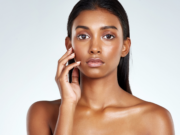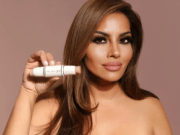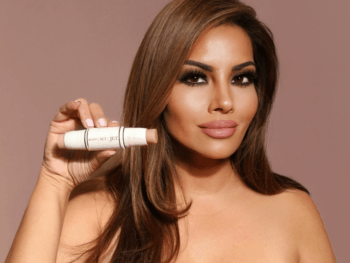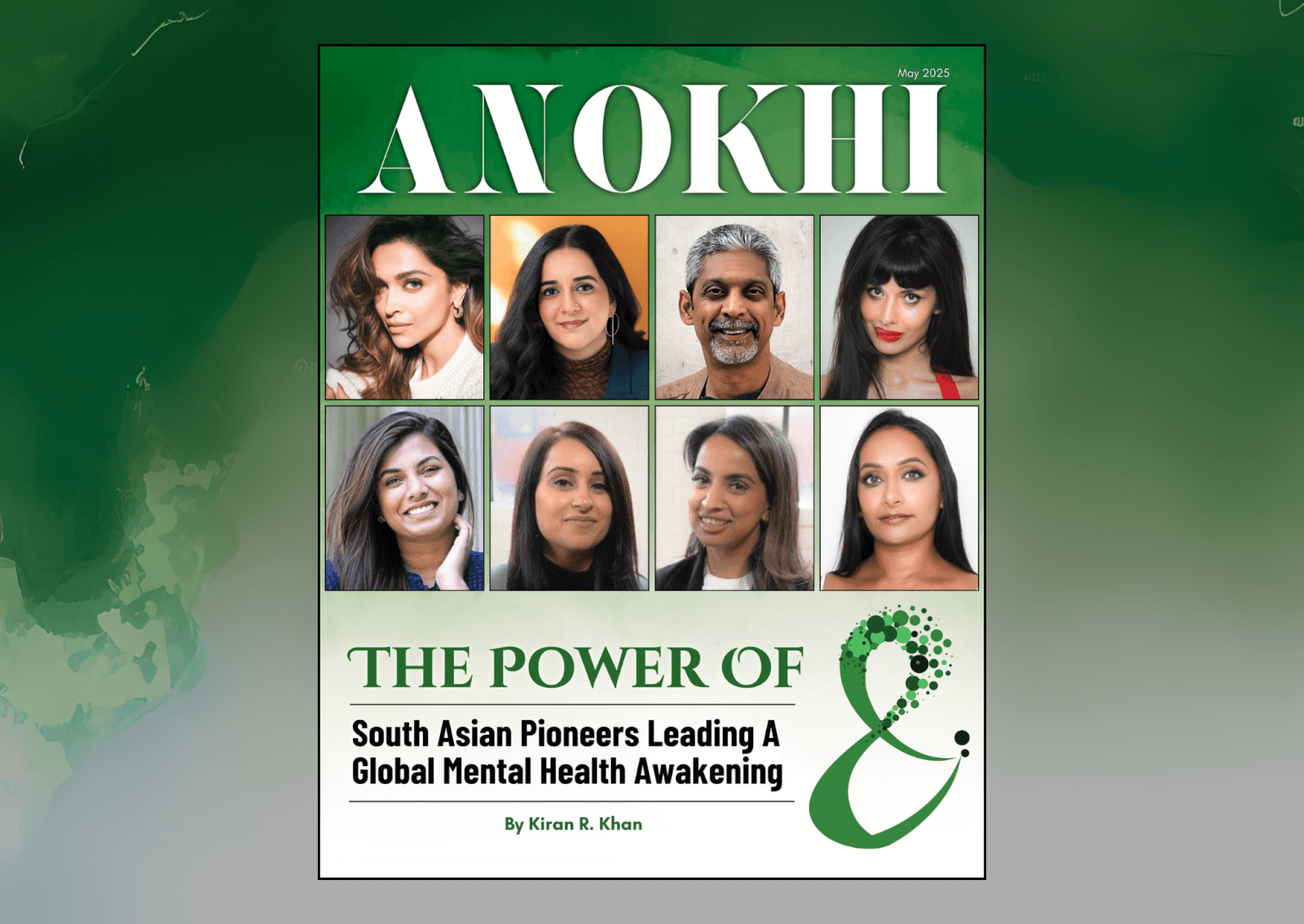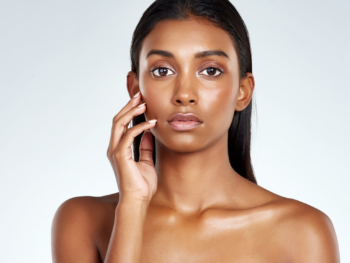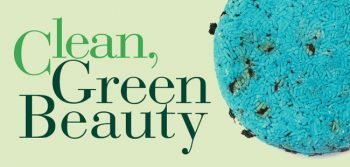
A look at how natural and organic beauty brands are cutting out chemicals and giving back to the environment.
Whether you’re washing your face with a drugstore cleanser or slathering on night cream, it’s likely you haven’t read the long list of ingredients on the label. After the first reassuring ingredient, ever-necessary water, a tongue-twister like diethyl phthalate usually follows. What is that anyway? You shrug your shoulders in the bathroom mirror and think it’s safe, assuming the qualified experts that developed the formula probably know best. Think again. Diethyl phthalate is used to increase the elasticity of plastic products and has been linked to a higher risk of breast cancer.
Over the past few years, the ingredient-conscious consumers of the beauty world have rallied against the potentially harmful chemicals that have been sneaking, mostly unnoticed, into our everyday regimen. Even big brands like Johnson & Johnson and Unilever have seen an increase in the popularity of their natural and organic products.
Companies like Lush Cosmetics and Pureology are creating quality products while limiting the number of unpronounceable ingredients. These good-samaritan beauty giants are combining their clean image with social responsibility and sustainability.
“Regardless of what culture you’re from, beauty means something to you,” says Jenise Lee, the founder of Clean Care, a Canadian company that works to screen products and companies for their green benefits in order to educate consumers. “Globally, everyone’s putting products on their faces and bodies that can cause harm, and that just makes no sense to me.”
Lee, who has always had sensitive skin, paired her chemical engineering background with her passion for green body products. When analyzing natural products, Clean Care is on the lookout for sodium lauryl sulphate and paraben-free in the ingredients. SLS, a skin irritant, is what you might find in your shampoo to make it lather luxuriously, but combined with other specific chemicals, it can transform into a cancer-causing carcinogen. Another chemical to be wary of is the much too common formaldehyde — that’s right, the preservative used to embalm dead bodies. It is used in small quantities in beauty products to limit the growth of bacteria, but has also been deemed a carcinogen that is harmful to the human immune system.
While the chemicals may sound sinister and the warnings a little dramatic, it’s important to understand how exactly the ingredients can make it into your products. In 2010, Canada introduced the Cosmetic Ingredient Hotlist, an on-going list of more than 500 ingredients that are banned or have limited use in cosmetic products. This contrasts the more than 1,300 that have been banned in the European Union. Canada uses a risk-based assessment approach when deciding the fate of cosmetic ingredients. For instance, a chemical may be linked with causing cancer, but only in high doses, and so the small quantity that is used to improve the pigmentation of an eye shadow counts as a low-risk. Meanwhile, the European Union employs the hazard-based assessment model where if there is a known health-risk associated with an ingredient, it will very likely be banned. Also, Lee explains, when approving the chemicals in personal care products in Canada the possible “synergistic effects” of several separate chemicals mixing together is not considered.
“Natural skin care products, particularly those which use unrefined raw ingredients, provide your skin with nourishing active ingredients which can repair it and prevent damage (e.g. from free radicals). They generally don’t contain things like formaldehyde and parabens, which may cause adverse health effects. As when selecting foods, it is best to select those skin care products which are minimally processed and natural,” Roohi Qureshi, owner of Canada-based Leaves of Trees told us. Leaves of Trees makes all-natural beauty products, often with ingredients you can find in your pantry.
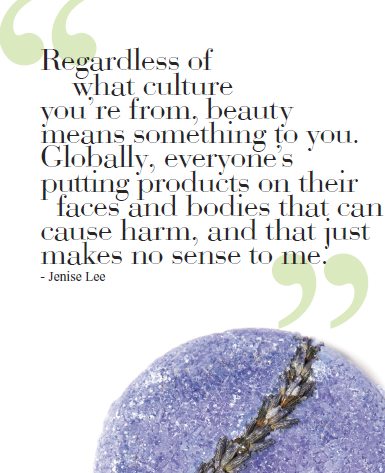 As mainstream consumers become privy to the potential harm they may be exposing themselves to, Lee also warns to beware of products that falsely claim to be healthier, plastering the words organic and natural on packaging. Lee notes that in both Canada and the U.S., “as long as one ingredient in the product is natural, legally, the product can be labelled natural, [but] it can still contain cancer-causing ingredients.”
As mainstream consumers become privy to the potential harm they may be exposing themselves to, Lee also warns to beware of products that falsely claim to be healthier, plastering the words organic and natural on packaging. Lee notes that in both Canada and the U.S., “as long as one ingredient in the product is natural, legally, the product can be labelled natural, [but] it can still contain cancer-causing ingredients.”
Appreciating the value of organic and natural ingredients goes hand-in-hand with being environmentally conscious. Lush Cosmetics, who use mostly fresh and natural ingredients (and indicate online whenever a product contains synthetic ones), is also working to benefit the environment and the community. Their solid shampoo bars have eliminated the need for plastic bottles, and selling 1.9 million bars a year, they prevent 5.7 million plastic bottles from ending up in landfills. Also, 100 per cent of the proceeds from the sale of their Charity Pot body lotion goes to grassroots charities doing environmental or humanitarian work around the world.
Likewise, Leaves of Trees works with a women’s cooperative in Morocco to source argan oil, a practice which ensures sustainable harvesting. Their packaging is reusable and recyclable, and customers can return empty bottles to the Leaves of Trees headquarters in Toronto for a discount on their next purchase.
Rustic Art, a small South Asian beauty company, is also doing its part by using natural ingredients and supporting local labour in India.
“Rustic Art is purely an extension of our love for nature . . . hence our outlook was always to conserve nature and minimize the use of chemicals in day-to-day use,” says co-founder Swati Maheshwari. The small company, based in Satara, Maharastra, uses all-natural ingredients to create wholesome face, body and home products like organic soaps and biodegradable laundry detergent.
“The Indian culture is organic and eco-friendly in its original form. Today there are certain organizations and people who are trying to create awareness and take us back to the roots, but that number is very small,” Maheshwari says. “It is ironic that India needs to re-learn its philosophy and culture.” As a result, she thinks it’s important for Rustic Art to promote a greener lifestyle in any way they can. All of their products are made by hand, employing the rural women of Auroville, Pondicherry, and are packaged in handmade paper.
“We realized there was a gap, which we wanted to fill because it meant we could help many people switch to an organic way of living,” Maheshwari says.
Organic & Eco-Friendly Products
Lush Cosmetics is known for their revolutionary shampoo bars.
Their bestselling Seanik Shampoo Bar, $11.95 CDN, is a bright blue mixture of minerals and softening Irish moss seaweed for a volumizing effect.
The Jumping Juniper Shampoo Bar, $10.95 CDN, is a vibrant violet concoction that’s great for sorting out any greasy scalp issues and balancing sebum production and it leaves hair shiny and soft. If you have dandruff, try the Soak and Float Shampoo Bar, $10.95 CDN.
Giving this bar its trademark campfire scent, cade oil fights against the microbes that cause flaky scalps. Dull hair will benefit from the ylang ylang oil in Lush’s Ultimate Shine Shampoo Bar, $11.95 CDN, while the elemi and violet leaf oils purify the scalp and treat distressed locks.
Rustic Art products consist of natural and simple ingredients that come together to nourish the body.
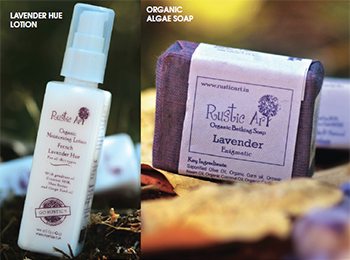 The algae in Rustic Art’s Organic Algae Soap, $2.80 CDN, acts as an antioxidant and helps reduce wrinkles.
The algae in Rustic Art’s Organic Algae Soap, $2.80 CDN, acts as an antioxidant and helps reduce wrinkles.
The organic beauty retailer’s Lavender Hue Lotion, $13.95 CDN, contains natural ingredients that nurture the skin, like shea butter, organic almond oil and organic French lavender.
If you’re looking to indulge in fresh and exotic scents, try their cooling Aloe-Vera Papaya Gel, $5.43 CDN. It soothes inflammation and helps eradicate blemishes for healthy, Vitamin-E infused skin.
Another fruity selection, the Organic Blueberry Body Wash, $7.05 CDN, is overflowing with essential oils that will leave your skin fragrant and supple.
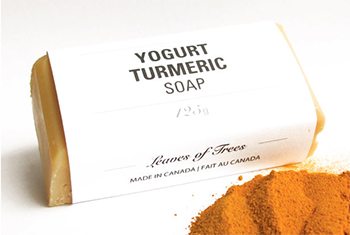 Leaves of Trees uses modern apothecary techniques to create unique recipes that sooth and heal the skin.
Leaves of Trees uses modern apothecary techniques to create unique recipes that sooth and heal the skin.
Yogurt Turmeric Soap, $5 CDN, is perfect for irritated skin with anti-inflammatory agents and soothing properties.
Lavender Tangerine Deodorant, $15 CDN, is infused with cocoa, lavender, grapefruit and argan to leave skin feeling soft and fresh all day.
BY PRAJAKTA DHOPADE
PHOTOGRAPHY COURTESY OF LUSH COSMETICS, LEAVES OF TREES AND RUSTIC ART
PUBLISHED IN THE FASHION & STYLE ISSUE, FALL 2014















